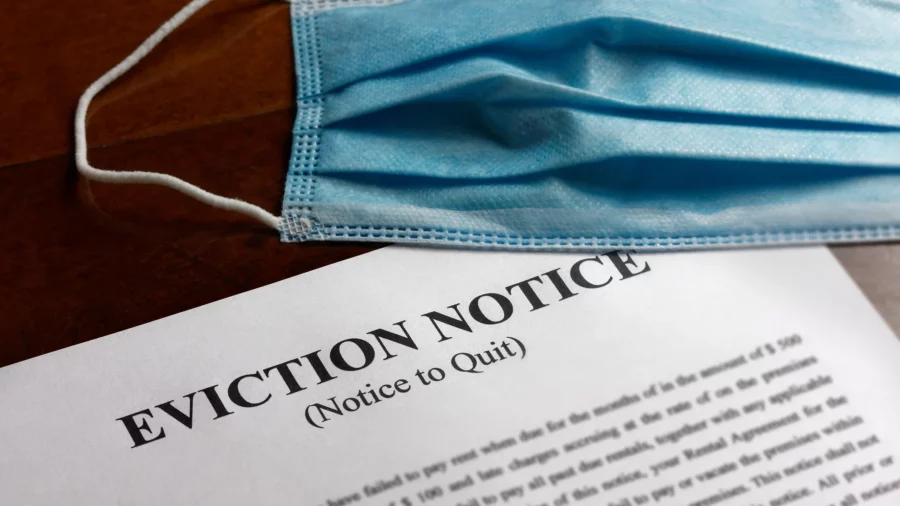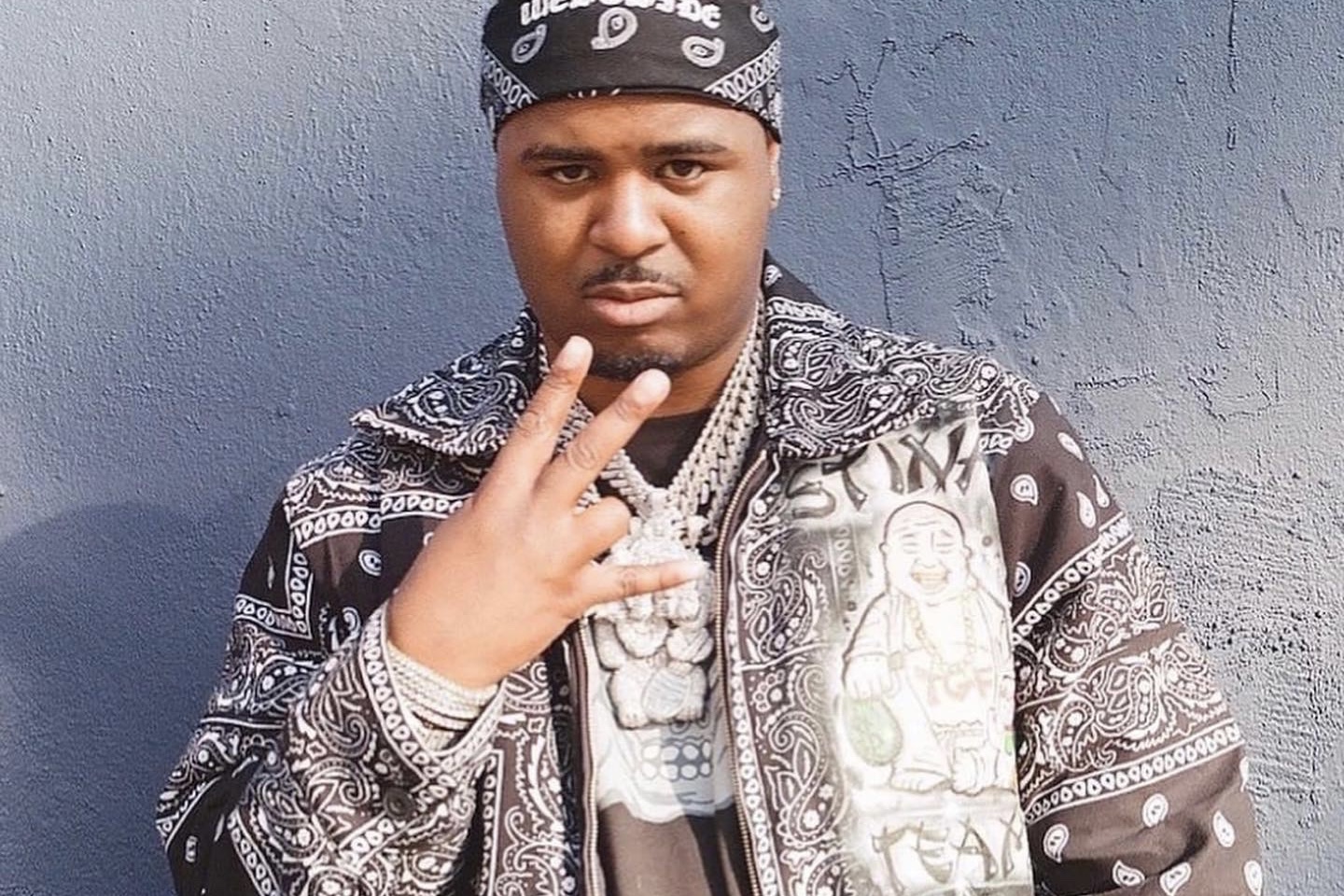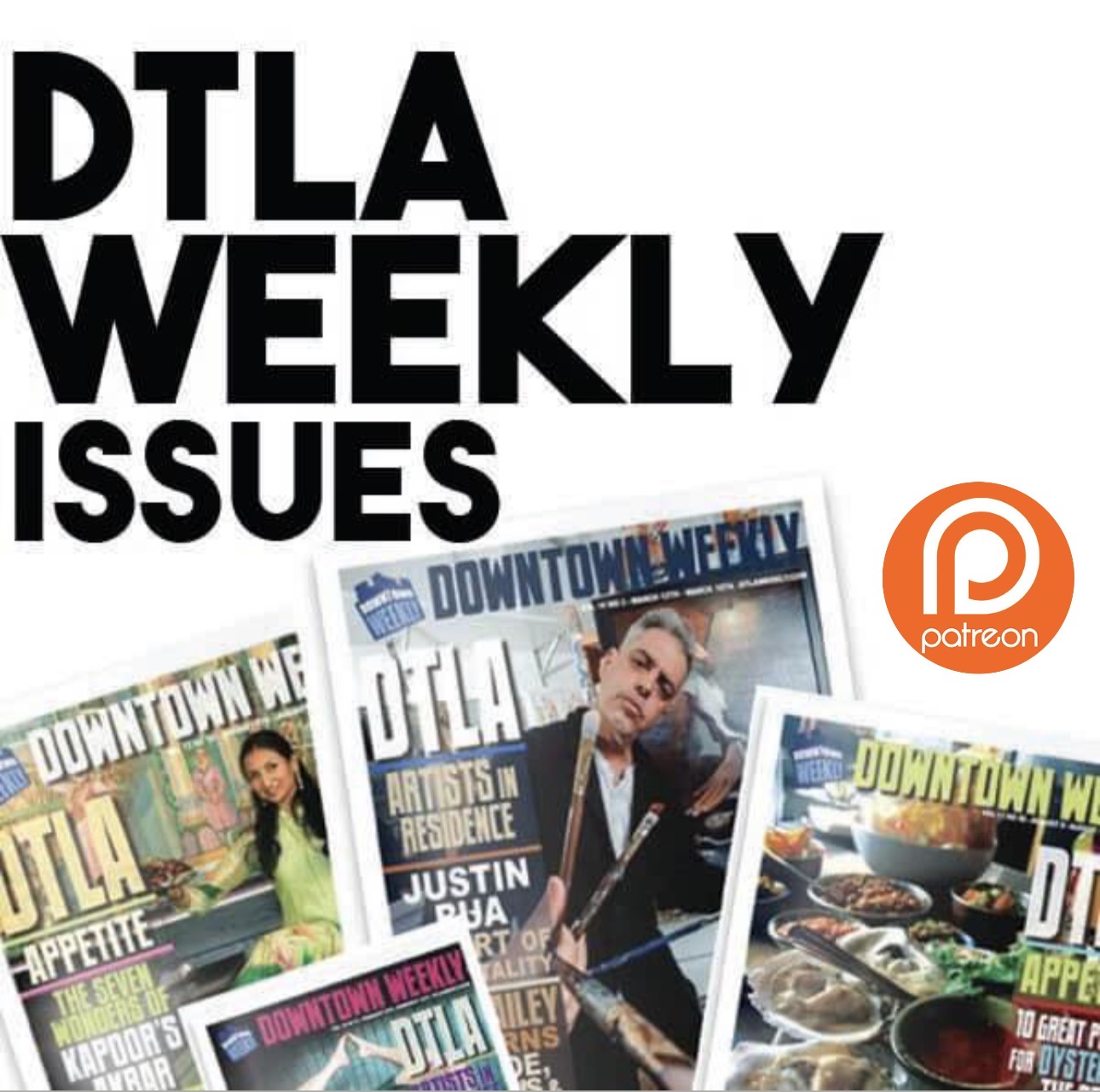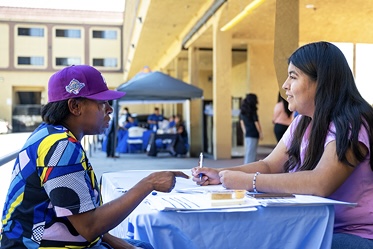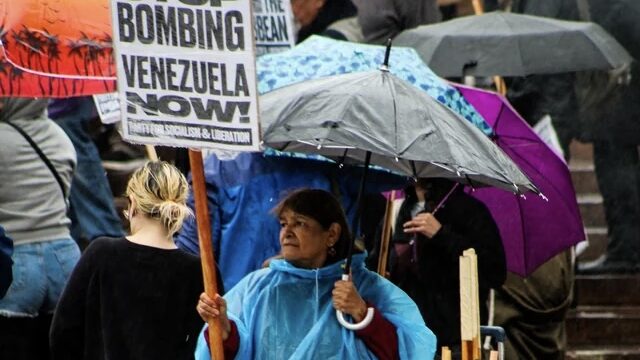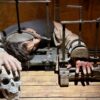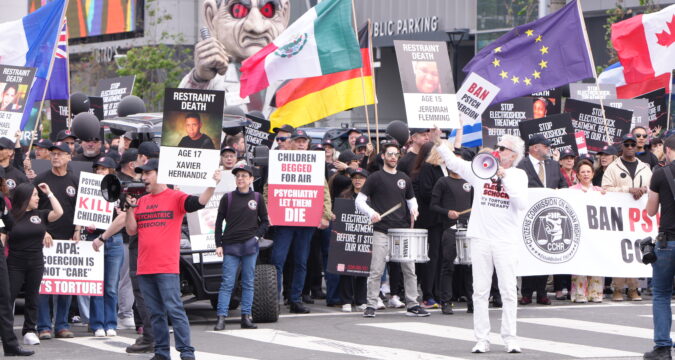
While the world’s largest psychiatric organization, responsible for publishing the handbook for diagnosing and treating mental disorders around the world, is holding its Annual American Psychiatric Association (APA) meeting at the LA Convention Center, watchdog humanist group Citizens Commission on Human Rights (CCHR) International led a protest just outside a diverse coalition of human rights advocates, civil rights
leaders, clergy, medical professionals, and attorneys rallied outside demanding an end to deadly and coercive psychiatric practices.
Led by the Citizens Commission on Human Rights International (CCHR), a psychiatric industry watchdog, the protest at the Los Angeles Convention Center focused on lethal restraint deaths of children, the widespread use of forced treatment, and the lack of accountability in a mental health system that received $329 billion in federal funding in 2022 alone.
More than just few blocks away with a calmer tone CCHR had set up a pop-up exhibit on 11th and Hope, bent on offering alternative perspectives on mental health care around the world.
Take a step back into the past
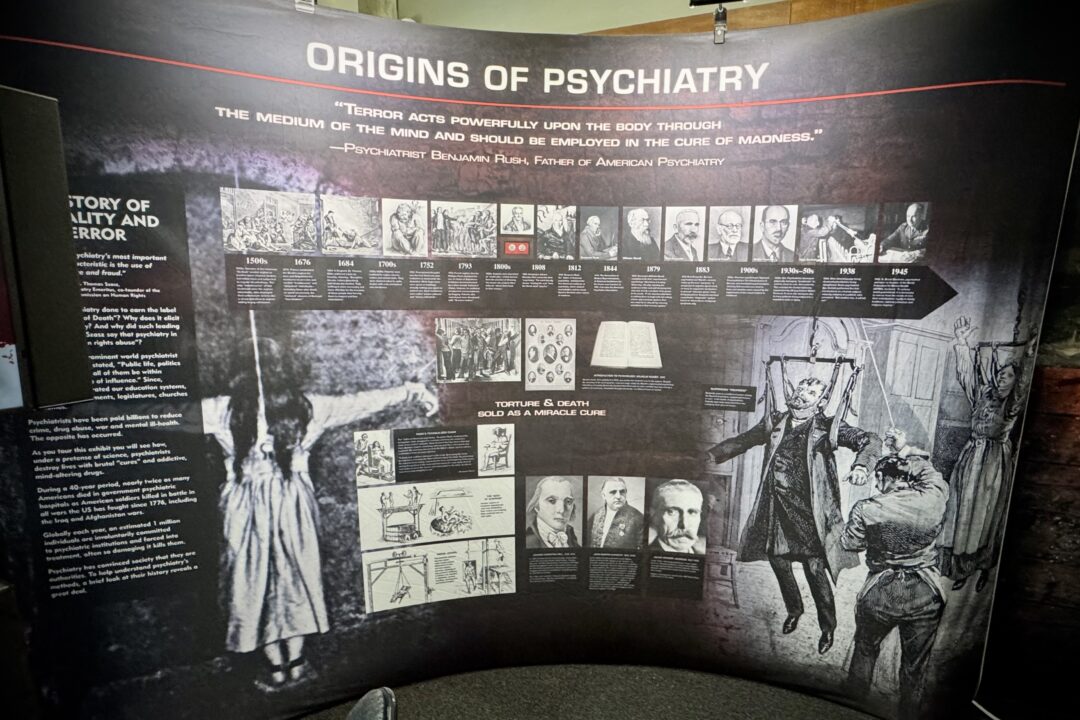
CCHR Pop-Up on 11th and Hope photo by Keri Freeman
For over 50 years, CCHR, has been advocating for a complete ban on what it labels as coercive and non-consensual measures in psychiatric settings.
CCHR, say they clash with APA recommendations, highlighting what they perceive as systemic failures within the current psychiatric paradigm, arguing that billions in funding are not leading to improved mental health outcomes but are instead associated with rising suicides and the widespread prescribing of psychotropic drugs, even to children. Citing instances of child deaths linked to psychiatric practices, in many cases after being restrained in psychiatric settings, CCHR underscores the urgent need for reform.
CCHR states that despite condemnations from international bodies like the United Nations and the World Health Organization—which formally call for an end to forced drugging, electroshock, and physical restraints as violations of human rights and dignity—the APA isn’t committing to a no-coercion policy.
CCHR also spotlights what they describe as a disproportionate targeting of black youth and foster children with psychiatric labels, drugs, and restraints, leading civil rights leaders to characterize it as “chemical racism.”
They cite statistics suggesting black patients are prescribed higher doses of antipsychotics and that a significant percentage of black youth are diagnosed with “oppositional defiant disorder,” a label they argue lacks biological validation.
Reverend Frederick Shaw, Jr., President of NAACP Inglewood-South Bay, draws parallels to the 1960s, when civil rights activists were similarly labeled and drugged, asserting this modern approach is a form of “chemical racism” designed to silence black voices.
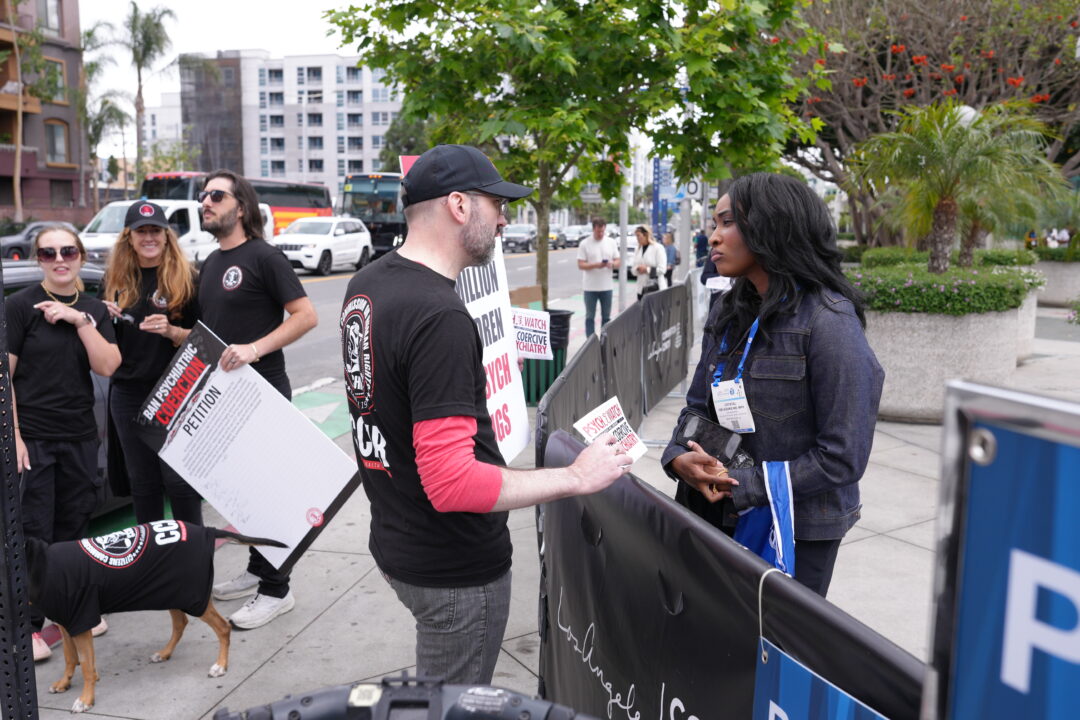
Taking it to the streets – photos courtesy of CCHR
Joseph J. Cecala, Jr., a civil rights attorney and former U.S. Army Captain, is also raising concerns about widespread psychiatric drugging in the military, questioning why such drugs are prescribed to troops if they could be considered a national security risk in enemy hands.
Beyond their current activities in Los Angeles, CCHR has a long track record of advocating for reforms in mental health care. Their efforts include presenting Human Rights Awards to prominent advocates like Amalia Gamio, a disability rights advocate from Mexico, who emphasizes the urgent need to ban all coercive measures in psychiatric settings.
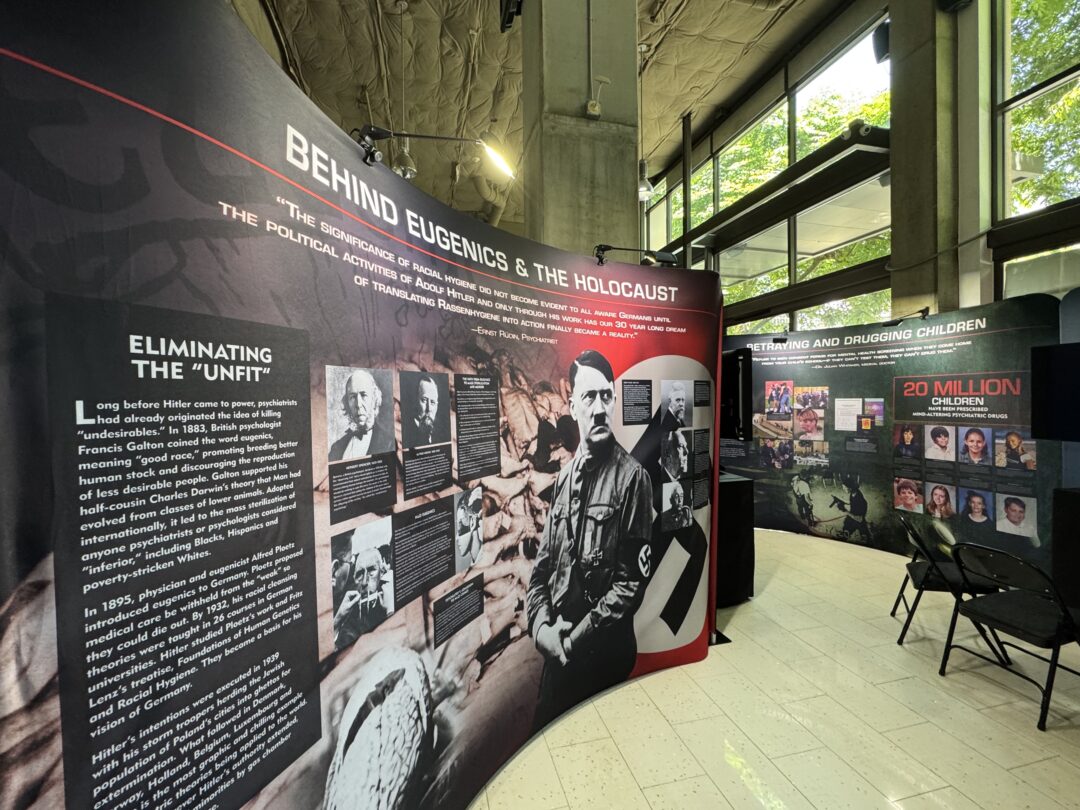
CCHR Pop-Up on 11th and Hope photo by Keri Freeman
They also recognized Dr. David Schneider-Addae-Mensah, a German attorney who successfully argued that involuntary psychiatric treatment could constitute criminal assault.
Globally, CCHR and its chapters are pursuing various avenues for change, including achieving legal victories and legislative reforms.
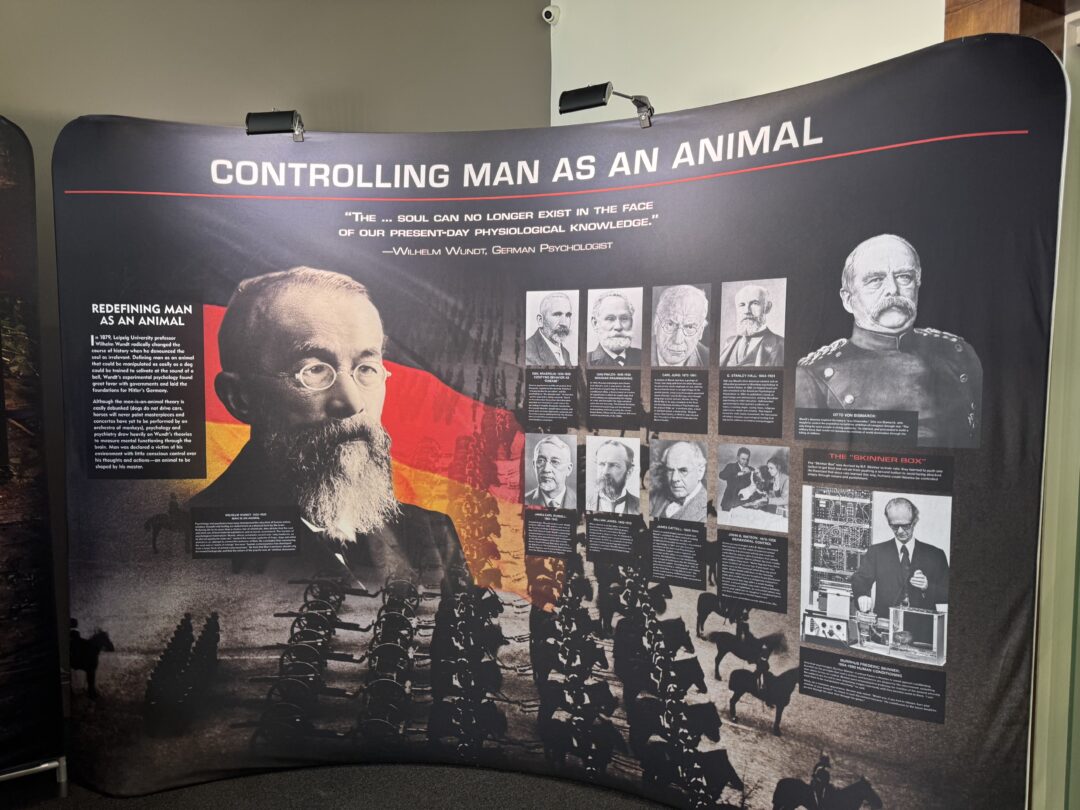
CCHR Pop-Up on 11th and Hope photo by Keri Freeman
In Spain, they successfully defended their right to expose psychiatric abuse, with a court affirming their contribution to public debate on involuntary institutionalization and electroconvulsive therapy.
CCHR Japan is documenting cases of alleged criminal practices, including sexual assault of patients and the revocation of psychiatrists’ licenses for fraudulent credentials.
In Mexico, CCHR’s advocacy contributes to the amendment of the General Health Law, requiring voluntary mental health services and banning seclusion and restraints.
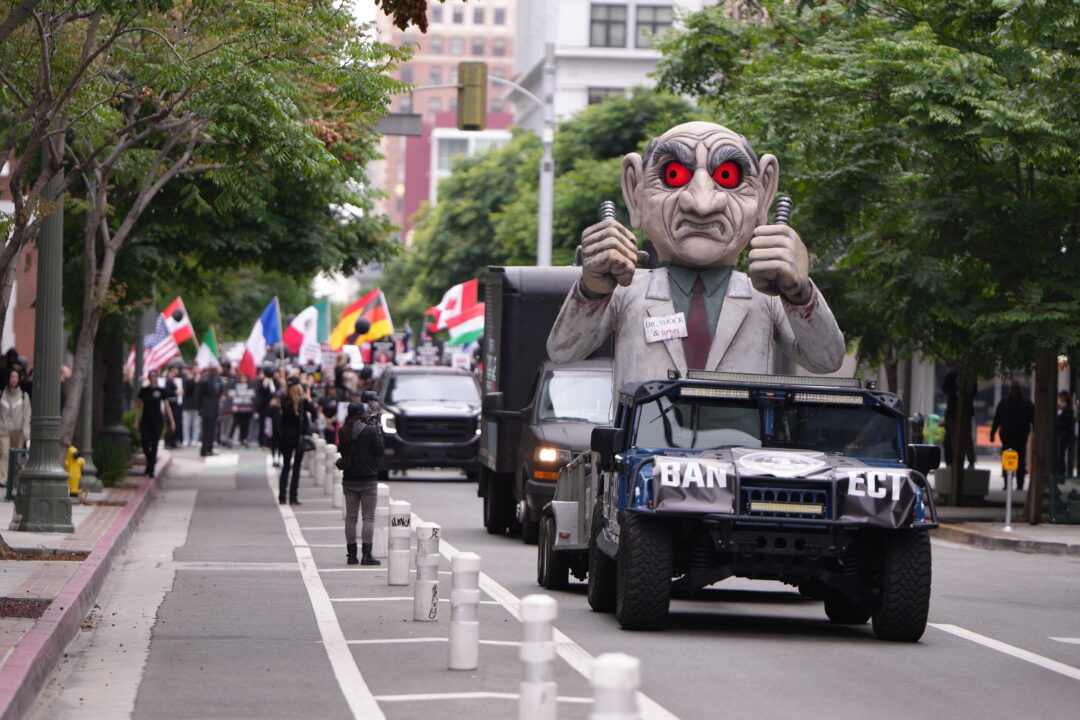
Taking it to the streets – photos courtesy of CCHR
CCHR New Zealand, alongside survivors, is receiving the New Zealand Community of the Year Award for their work in seeking justice for victims of severe abuse, including electroshock without anesthesia.
CCHR Hungary is achieving landmark legislative reform ensuring compensation for individuals unlawfully detained in psychiatric institutions, while CCHR Germany is instrumental in exposing psychiatry’s historical role in Holocaust atrocities.
In Italy, CCHR’s persistent efforts are leading to government action to close what they describe as deplorable psychiatric asylums and secure legislation limiting psychiatric screening in schools.
In Australia, their exposure of the lethal “Deep Sleep Therapy” at Chelmsford Private Psychiatric Hospital ultimately led to its ban. In the U.S., CCHR Texas successfully championed legislation banning electroshock treatment on children under 16, now the most restrictive law of its kind in the nation. Through these sustained efforts, CCHR aims to promote a human rights-based approach to mental health care and offer alternatives to practices they view as harmful.
While visitors of the LA Convention Center return to our day-to-day lives trusting the psychiatric systems in place are working, CCHR will pack up their pop-up exhibit on Sunday, May 25, but not their mission. Their permanent ‘Psychiatry: An Industry of Death’ Museum is located in Hollywood at 6616 Sunset Blvd, Los Angeles, CA 90028, welcomes all to dive deeper into their ongoing work and explore new perspectives on mental health care. www.cchrint.org
![]()



